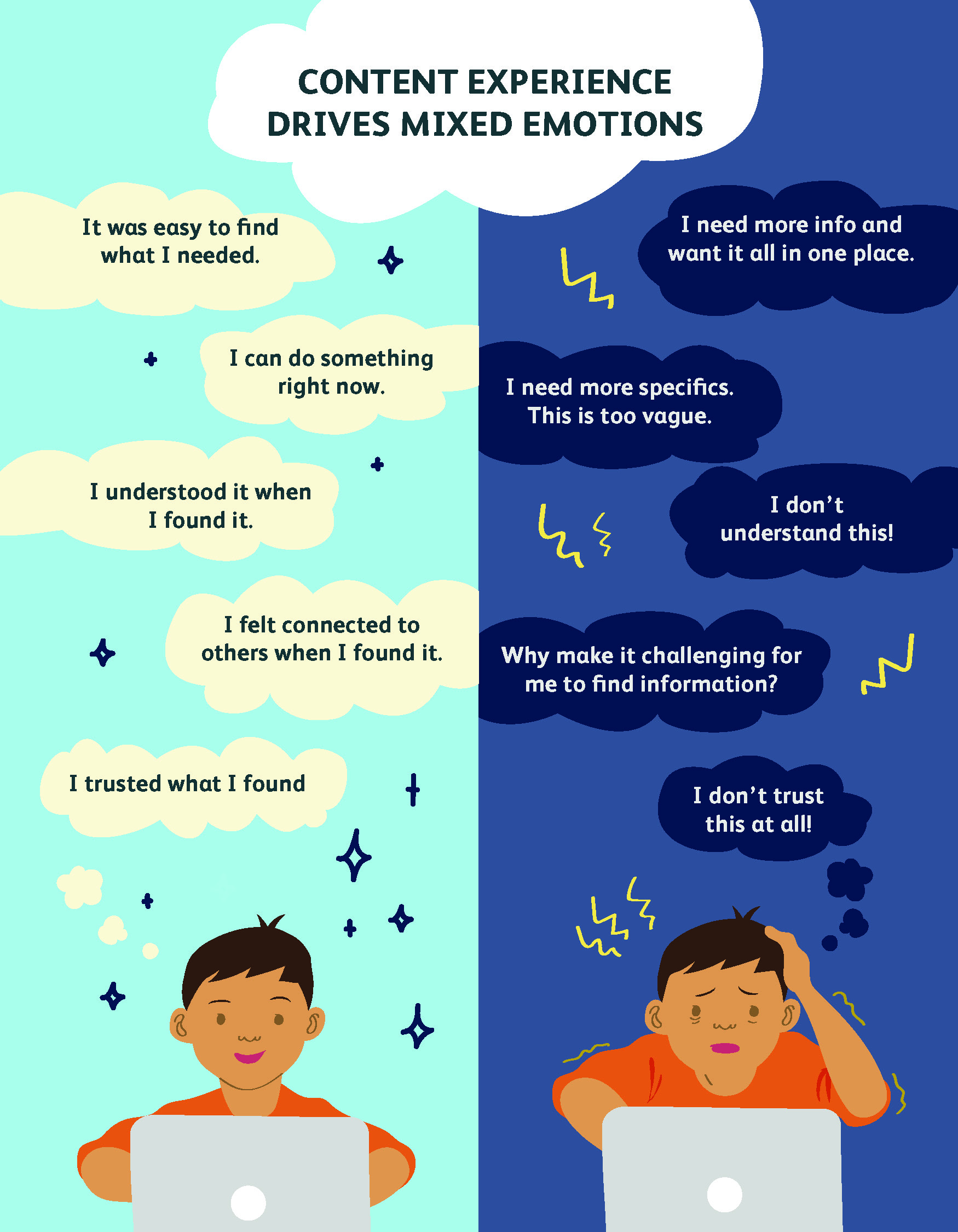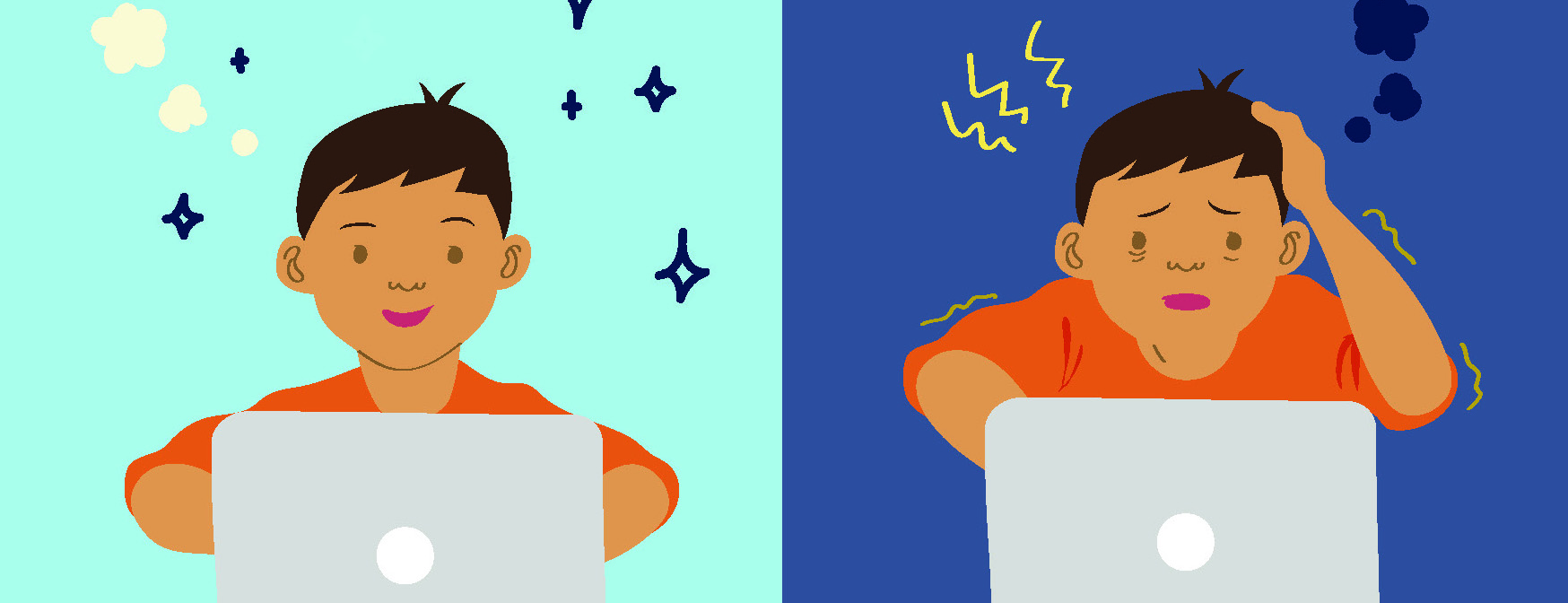Most people don’t casually browse online for health information. Usually, they’re turning to the internet to seek help for a specific reason—perhaps a troubling symptom has emerged, or they’re preparing for an upcoming doctor’s appointment.
This type of active, results-oriented search behavior is typical across hundreds of health conditions and thousands of search queries. The fact is, as varied as medical topics may be, the people who go online to find health information share many similarities. Questions such as, “Why is this happening?” or “What can I do about this?” are common.
And with these questions come emotions. When we search for health information, we’re not just seeking facts, we’re driven by a need to find answers—and to find answers that make us feel better.
 The Impact of Online Search on Emotions
The Impact of Online Search on Emotions
Recently, Verywell partnered with research firm KR&I, and conducted a month-long digital ethnographic study, where participants documented their in-the-moment experiences while going online for health information. The participants, who self-reported as having a range of health conditions, recorded mobile videos and answered questions via an app.
This study found that 82% of participants felt “negative emotions” before they began their search for information. These participants reported feeling concerned, anxious, and depressed.
Did search results change those emotions? According to the study, participants’ experiences were highly dependent on where their search results took them. At times, these negative emotions were replaced with feelings of hope, relief, confidence, and control. Other times, they devolved into fear, disappointment, anger, and despair.
Through this study, KR&I was able to determine which factors in a search result impacted the participants’ emotions:
1) Relevance to the Query: Does it answer my question?
2) Credibility: Is it from a source I trust?
3) Empathy: Is it relatable to me as a person?
4) Ease of Navigation: Can information be found quickly and intuitively?
The more a participant could answer “yes” to these qualities, the more likely they were to have a positive experience. And positive user experiences drove action. An impressive 78% of participants who had a positive experience were prepared to take an immediate action, such as reaching out to a doctor, purchasing an appropriate medication, and changing their eating habits.
The big takeaway here for pharma marketers is that they need to align themselves with users that have had a positive experience, because these are the people that are motivated to act immediately. Using the four factors outlined above, assess each potential media partner and decide: Will this site’s content lead to user action?








